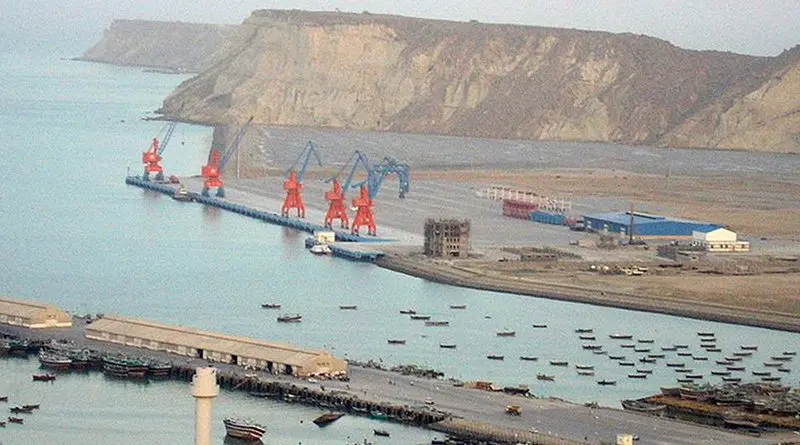Potential And Challenges Of CPEC: Baluchistan’s Economic Transformation through Gwadar Port And Free Zones – OpEd
The potential of the China-Pakistan Economic Corridor (CPEC) and the rise of Gwadar Port are boons for Baluchistan’s economy. The residents of Gwadar are the primary stakeholders in this port city, and the establishment of the Gwadar Free Zones (North and South) is intended to transform Pakistan into an export-driven country. Beginning with trading metals such as copper and gold from Reko Diq, the export effort out of Gwadar Port is projected to strengthen Baluchistan’s socioeconomic situation significantly. I hope this will provide Baluchistan with a solid economic basis for future generations to build growth and prosperity.
The recent implementation of the e-Custom System is expected to transform Gwadar Port into a technically advanced, high-functioning port with cutting-edge facilities. Web-based One Custom (WeBOC) integration will facilitate commercial activity at the port, speeding up industrialization and logistical services. The introduction of vocational training programs in various engineering disciplines seeks to develop technical expertise in precision mechanics, instrument technology, and die and shape methods, thereby enhancing the trade’s technical side. As Gwadar evolves into an international metropolis, it will house several communities demanding laws to protect citizens’ political rights. These new initiatives will help Gwadar Port become an even more significant economic hub for the region’s economy.
The export of gold and copper from Reko Diq through the Gwadar Port has been a long-awaited development that promises to stimulate Pakistan’s economy. However, Barrick Gold Company’s engagement in the project raises questions about possible exploitation and profit-making at the expense of residents and the environment. With $7 billion to be invested in the mine over the next decade, the company’s proposal to invest $4 billion in the first four years and $3 billion in the subsequent six years appears optimistic. The Pakistani government is responsible for ensuring that the development is safe for the environment and that locals benefit pretty from it. Failure to do so could lead to further exploitation of the region, benefiting investors and harming the Baluchistan people.
Establishing Gwadar Free Zones was a crucial step in transforming Pakistan into an export-oriented country and enabling it to compete in international trade. To encourage economic development and attract international investment, free zones provide a duty-free setting where businesses may produce and export commodities. It should be noted, however, that the free zones provide the local markets with trade commodities and manufactured goods and function as a hub for exporting goods.
Therefore, the government must ensure the free zones’ economic advantages spread to the surrounding areas. Monitoring how manufacturing in the free zones affects the local environment is also essential. Gwadar’s free zones can boost economic growth and prosperity for the country, positioning it as a competitive competitor in global trade if properly administered.
The federal government’s efforts to provide Baluchistan’s youth with improved opportunities through the CPEC initiative are commendable. Investing in cutting-edge education and technological know-how is essential to the area’s growth. However, the government must ensure these initiatives are open to Gwadar and other areas in Baluchistan. While it is encouraging that resources have been set aside to establish technical training centers in Gwadar for precision mechanics and instrument technology, there must be ongoing work to keep these centers up-to-date and relevant. The government is also responsible for guaranteeing that people from all walks of life and of all genders have equal access to the centers’ educational and vocational programs. Baluchistan benefits significantly from these ongoing initiatives if they are carried out efficiently and successfully.
There appears to be agreement regarding the significance of CPEC for Pakistan’s economic development and its potential to advance regional connectivity. However, obstacles such as slow project completion, poor infrastructure, and political instability, among others, constitute an imminent risk to the initiative’s viability. Stresses the need to address environmental issues and ensure sustainable growth. Despite these difficulties, Pakistan dramatically benefits from the initiatives now underway, such as expanding the Gwadar Port and Free Zone, building the Gwadar International Airport, and creating special economic zones. Foreign investment, increased commerce, and new job creation are all possible outcomes of these endeavors. To take advantage of these chances, however, the government must take decisive action to counteract the region’s most pressing risks and safeguard the area’s long-term prosperity.
Abdul Mussawer Safi is an author on platforms such as International Policy Digest, Modern Diplomacy, the South Asia journal Eurasia Review, and Kashmir Watch. He is pursuing his bachelor’s in international relations from the National Defense University Islamabad. He has a profound interest in World politics, especiallyin the regional dynamics of South Asia. His academic strengths are critical and SWOT Analysis. He tweets at @MussawerSafi and can be reached at [email protected]

